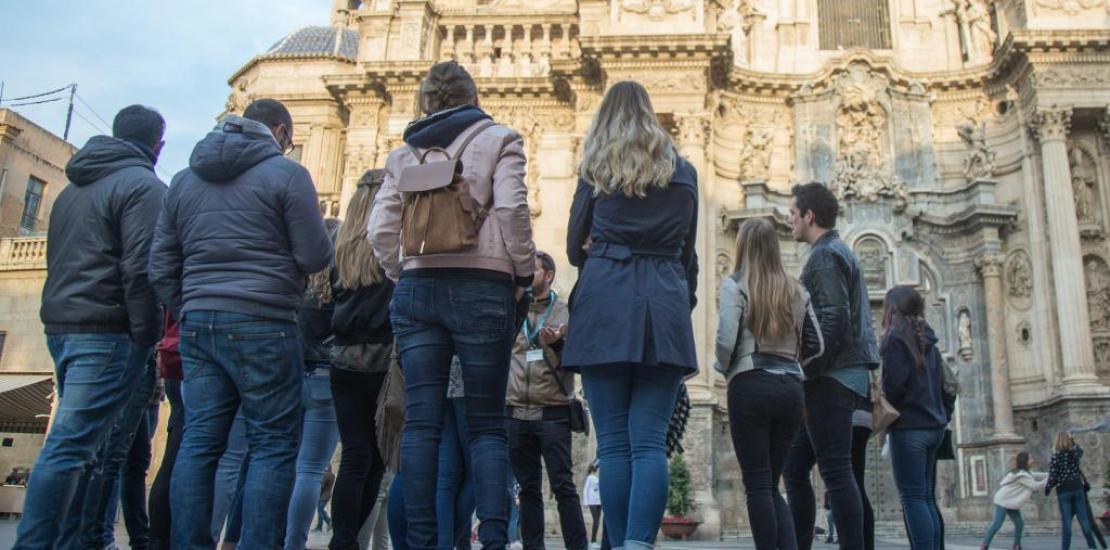Students of UCAM submit proposals to the World Tourism Organization to revive the sector
Technological innovation, collaboration between agents and destinations and health trust are key elements to get out of the crisis provoked by Covid-19 according to these students of the Bachelor’s Degree in Tourism, who also submitted their initiatives to the Confederation of Regional Business Organizations in Murcia (CROEM) for their possible regional development.
The team composed of five last-year students that represents UCAM Universidad Católica San Antonio de Murcia in the World Tourism Organisation League submitted a study on the resilience of the sector in Spain, and the adaptation that should be done to get out of the crisis caused by the coronavirus. The report, that compete with the reports of sixty other universities from around the world, considers that the collaboration between restoration, hotels, managing body, leisure activities, etc., but also between destinations is necessary in order to get out of the crisis together and make Spain offer itself as a safe place.
The proposal was developed by the students of Tourism Liviu Gutu, Elizabeta Bezugla, Ignacio Téllez, Iván Lorente and María Sánchez, directed by the teacher of the Bachelor’s Degree, Jorge López. In it, they break down a series of technological innovations to monitor and facilitate international tourism in museums and monuments, amusement parks, tourist buses, cinemas and theatres. They also come up with preventive health solutions in hotels with the Safe&Clean’ seal, such as luggage disinfection, rapid tests, screens in reception, menus accessible through QR code in restaurants, substitution of free buffet with a la carte meals, use of sanitizing gels, etc.
They propose the creation of the figure of the “tourism agent”, to control the capacity in beaches, or the design of less overcrowded paths in the cities, and they believe that efforts should be focused on attracting the Portuguese and French public, because of the easiness of communication, given their proximity.
Among the ideas to invigorate rural tourism by avoiding the concentration of people, they propose to allow again and temporarily free camping outside from tourism camping structures, with a maximum amount of three tents, ten campers and three days spent in the same place.




